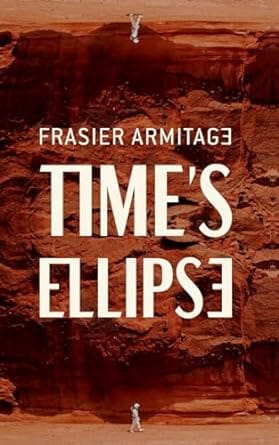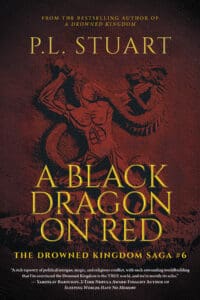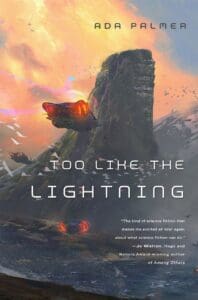
Synopsis:
No solution saves everyone. Only one keeps us human.
The hope of a dying Earth rests on a crew of astronauts. Their mission: find a new home. But when they touch down on a distant planet, a time-bending anomaly traps them in a situation that no one could’ve predicted, causing them to question the nature of humanity, the snare of destiny, and the shape of time itself.
Time’s Ellipse spans generations, orbiting the lives of the scientists and astronauts involved in this historic mission as they discover that escaping the planet is simpler than evading its legacy.
Review:
This was a fantastic, impossible-to-put-down story. I read it in about a day, which is something I haven’t done with a full-length novel in a very long time.
It’s written in style similar to Blake Crouch, with a couple viewpoints that reminded me a bit of Andy Weir’s writing. So if you like either of those authors, you’ll probably like this book too.
Each chapter focuses on a different character and on a different timepoint in the overall story. What I loved most was that each character had a distinctive voice, even though all of them shared the common goal of saving humanity from itself and its mistakes. They were all unique and interesting in their own way, which made the story that much more compelling. And I found some of the later chapters to be the most fascinating as certain aspects of society evolved due to…circumstances (I don’t want to go into details here since it’s a spoiler, but I really enjoyed the concept.)
For me, science is about solving the mystery of why and how things work, and this book captured that theme beautifully. It also touched on the fact that a scientific theory needs to be tested before it can be proven, but that testing sometimes yields unexpected results—leading to another mystery requiring further investigation. This theme of problem-solving and discovery was embedded throughout the book, and I loved that about it.
Time’s Ellipse was a great read.
Side note: The scientific theory presented was the one aspect that I still have some questions on. As a scientist myself (although not a physicist by any means), I’m always intrigued by new ideas and discoveries. I did a bit of searching to see if there is any real-world theory similar to the one presented, and I didn’t find anything. And that’s okay—it is science fiction, after all. I was only researching the potential theory to satisfy my own curiosity.







Leave a Reply